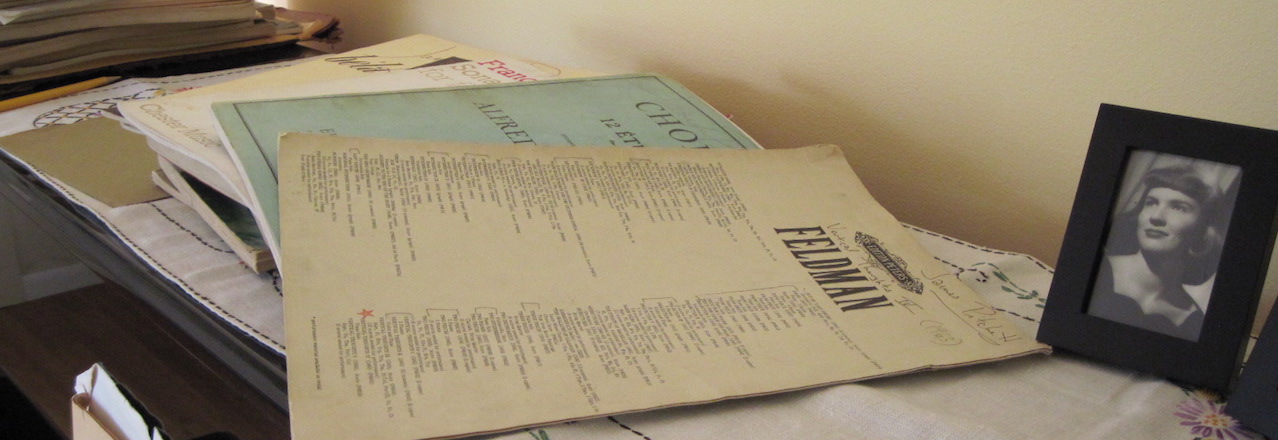When I was a grad student at NYU in the 1980s, I got a call from the music department about a possible job. A psychologist who lived near Washington Square, had contacted the department looking for someone to teach her theory: was I interested? I said sure, why not, and this is how I met Dr. Thea Spyer. I don’t remember the details clearly now, but I believe I saw her weekly or biweekly. We started with fairly formal exercises in four-part harmony, and so forth. She had little patience for this. She had a real passion for music and what she wanted was insight into how it worked. And so I started assigning her pieces to study and she learned harmony that way.
I guided her through various repertoire, although at this distance of years I don’t remember most of what I assigned. What I remember was her sharp mind and her enthusiasm for engaging the music. I remember assigning one of the Schubert song cycles (possibly Die schöne Müllerin?) and being surprised when she told me that she just couldn’t bear to listen to it. The clearly articulated, forceful German of Dietrich Fisher-Dieskau reminded her too much of Nazis in Amsterdam, and no matter how beautiful the music she just couldn’t get over that visceral reaction. On the other hand, she loved the closing trio of Strauss’ Rosenkavalier, which at the time I told her was “the meaning of life.” (that was the voice of foolish youth; now I know that the meaning of life is actually the slow movement of the Bach two-violin concerto).
I don’t know when I stopped visiting Thea; possibly when I moved to Brooklyn after finishing my coursework. I fell out of touch with her.
Thea popped up again in my life just recently, through—of all things—my reading the American Civil Liberties Union’s newsletter. Thea and her partner Edie Windsor were married in Canada a few years ago. They had been together for over forty years. Thea died not long after that and Edie, since her marriage was not recognized in this country, was subject to onerous inheritance taxes that a heterosexual spouse would not be. The ACLU is suing on her behalf, challenging the constitutionality of the so-called “Defense of Marriage Act” (DOMA). Here’s the video from the ACLU describing Thea and Edie’s history and their case:
So what does this have to do with the piano in my life? I recorded the Prelude Op. 23, No. 4 of Rachmaninoff recently. It’s a piece that I learned soon after getting the piano last fall and which I’ve been really enjoying ever since. It’s so romantic and over-the-top, and it’s a kick to let myself go into that big climax. After seeing the ACLU video I was touched by Edie & Thea’s story, and by my memories of working with Thea those many years ago. I’m sorry she’s gone and I can’t share this blog with her; she might have liked it. I present this big romantic Rachmaninoff performance as a tribute to the big romantic story of Edie & Thea, along with my fervent hope that their marriage is properly defended against the injustice of DOMA.
Update: Since I drafted this, the Department of Justice has announced that it will not be defending DOMA. “There are not words to express my feelings today,” was Edie Windsor’s response to the news. “My only regret is that my beloved late spouse, Thea Spyer, isn’t here today to share in this historic moment. But in my heart, I feel that she knows.”

Dear James,
I am so happy to have stumbled onto this beautiful tribute to Edie and Thea. I am a 70 year old gay man who had a wonderful 42 year relationship with my Leon who died five years ago of Parkinson’s disease. I recently got the DVD EDIE & THEA, A Very Long Engagement and was brought to tears, as I was by your beautiful playing.
Sincerely,
Winston Johnson
Atlanta